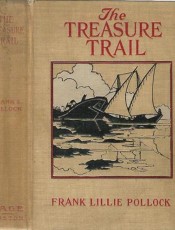we can hardly emphasize too much, or sufficiently underline, the moral effect of 1870 on the german nature, the influence it had on the german mind. it is essential to a clear understanding of the full prussianizing process that now set in. on the german's innate docility and credulity many have dwelt, but few on what 1870 did to this. only with bismarck's quick, tremendous victory over france as the final explanation is the abject and servile faith that the germans thenceforth put in prussia rendered conceivable to reason. they blindly swallowed the sham that bismarck gave them as universal suffrage. they swallowed extreme political and military restraint. they swallowed a rigid compulsion in schools, which led to the excess in child suicide i have mentioned. they swallowed a state of life where outside the indicated limits almost nothing was permitted and almost everything was forbidden.
but all this proscription is merely material and has been attended by great material welfare. intellectual speculation was apparently unfettered; but he who dared philosophize about liberty and the divine right of kings found it was not. prussia put its uniform not only on german bodies but on their brains. literature and music grew correspondingly sterilized. drama, fiction, poetry and the comic papers became invaded by a new violence and a new, heavy obscenity. impatience with the noble german classics was bred by prussia. what wonder, since freedom was their essence?
beethoven, after napoleon made himself emperor, tore off the dedication of his "eroica" symphony to napoleon. and goethe had said: "napoleon affords us an example of the danger of elevating oneself to the absolute and sacrificing everything to the carrying out of an idea." goethe fell frankly out of date in berlin. symphony orchestras could no longer properly interpret mozart and beethoven. a strange blend of frivolity and bestiality began to pervade the whole realm of german art. scientific eminence degenerated pari passu. no originator of the dimensions of helmholtz was produced, but a herd of diligent and thorough workers-out of the ideas got from england—like the aniline dyes—or from france—like the wassermann tests—and seldom credited to their sources. so poor grew the academic tone at berlin that a munich professor declined an offer of promotion thither.
for forty years german school children and university students sat in the thickening fumes that exhaled from berlin, spread everywhere by professors chosen at the fountainhead. any professor or editor who dared speak anything not dictated by prussia, for german credulity to write down on its slate, was dealt with as a heretic.
out of the fumes emerged three colossal shapes—the super-man, the super-race and the super-state: the new trinity of german worship.
该作者其它作品
《the dragon of wantley》
